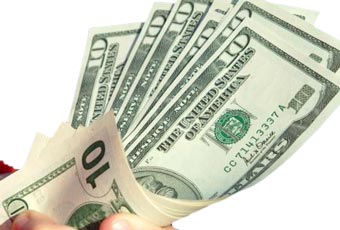
By Patrick Kagenda
BoU says it has no means of forecasting value of currency
A top Bank of Uganda official last week confirmed the continuing depreciation of the shilling.
Mary Katalikawe, the director for research at the central bank spoke as the world’s leading financial market analysts predicted that the shilling could end the year trading at over Shs 2,500 to the dollar.
“Our major stake is in stabilising the currency and I cannot predict the next intervention or where the shilling will cool off at. We have the reserves to stabilize the market,” she said.
At the time, Citigroup Inc had just issued a report forecasting that the shilling may slump another 12 percent this year as the current-account deficit widens and negative real interest rates encourage wary citizens to buy foreign currency as a store of wealth.
The currency may slump to Shs 2,500 per dollar in the second half of 2009, David Cowan, a sub-Saharan Africa analyst at Citigroup Inc. in London, wrote in a client note on May.
At the time, the shilling was trading at Shs with Shs 2,208 to the dollar.
Citigroup Inc. is a major American financial services company based in New York, NY with the world’s largest financial services network, spanning 107 countries. Its research units comprise 390 research analysts across 22 countries, 3,100 companies, representing 90 percent of the market capitalization of the major global indices, providing macro and quantitative analysis of global markets and sector trends.
“The Ugandan shilling could continue to suffer through the course of this year,” Cowan said separately in a telephone interview with Bloomberg News. “The widening of the current-account deficit is their biggest problem and financing it will prove a problem.”
Uganda’s shilling has slumped 11.5 percent against the dollar this year, the second worst-performing African currency after the Congolese franc and Madagascar ariary, according to Bloomberg’s list of 18 “exotic” currencies.
Declines have been driven by a 36 percent drop in robusta coffee prices since June, which crimped export revenue, and rising inflation that eats away at savings in real terms, Cowan said.
The drop in robusta coffee prices and Uganda’s “narrow export base” of coffee, fish and related products make it difficult for Uganda to finance the shortfall on its current account, a measure of trade in goods and services, according to Cowan. The gap will almost double in 2009 to 6.2 percent of gross domestic product, according to IMF estimates.
“Uganda has a very weak export base and that will maintain pressure on the current-account deficit, which is expected to expand,” said Cowan.
Uganda’s negative real interest rates, the product of inflation exceeding returns offered by bank deposits, may exacerbate the shilling’s decline, according to Cowan.
The Bank of Uganda’s benchmark interest rate of 9.73 percent compares with an annual inflation rate of 13.4 percent in April. “The equation has turned in favor of people buying foreign exchange as a store of wealth,” said Cowan
Cowan estimates potential demand for foreign currency in Uganda probably ranges between $1.5 billion and $3 billion, compared with reserves of about $2.5 billion.
“Pressure can quickly build on a currency in sub-Saharan Africa as a result of the actions of many individuals wanting to move relatively modest sums of foreign currency as a store of wealth,” Cowan said.
Katalikawe said the performance of the economy remains strong and that the central bank is seeing a growth on the credit which indicates a level of investment is taking place in the country.
She said the value of the shilling will remain market-determined and the bank will only intervene to create stability in the market. At the end of April the bank intervened in the market on the sell side by selling US $13 million.
Barrack Obtso, the portfolio manager in charge of the East African region at African Alliance brokerage firm told The Independent that the value of the the shilling is difficult to project but there are signs of offshore investors trickling back with dollars.
“Look at the interest rates, they are returning to normal and portfolio will slowly return and this means the shilling with stabilize,” he said.
But Stephen Mwanje proprietor of BM forex bureau and chairman Uganda Forex bureau operators association said he could only see stability at the end of the year.
 The Independent Uganda: You get the Truth we Pay the Price
The Independent Uganda: You get the Truth we Pay the Price



